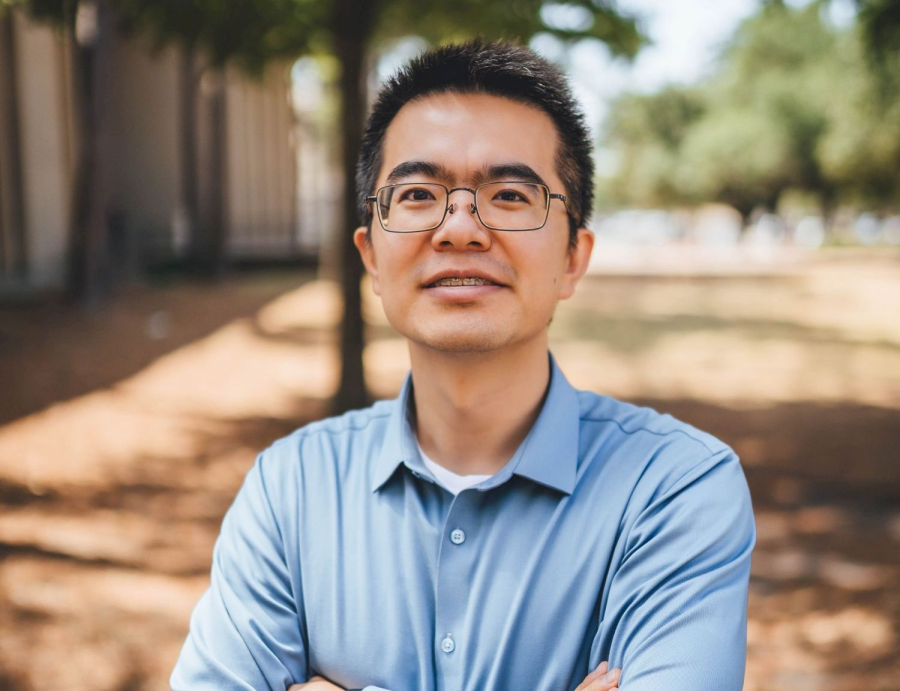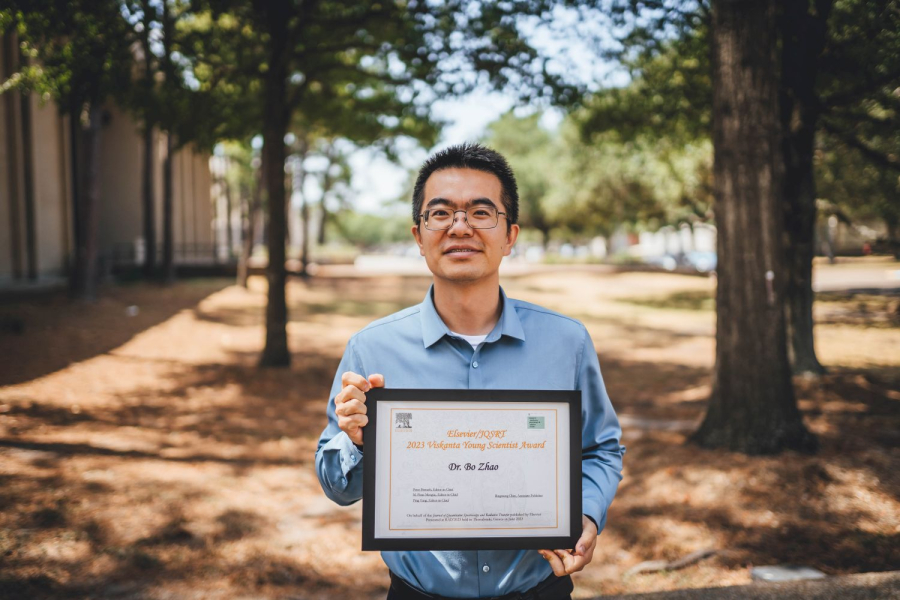A professor at the Cullen College of Engineering is the recipient of the 2023 Elsevier/JQSRT Raymond Viskanta Young Scientist Award, one of the highest honors for faculty early in their careers in the field of radiative transfer.
Bo Zhao, assistant professor in the Mechanical Engineering Department, was notified that he was this year's winner of the award in April.
“I feel deeply honored to receive this esteemed award,” Zhao said. “It serves as an encouragement for me to persist in making significant contributions to the heat transfer community.”
With this accolade, Zhao joins a select roster of emerging scientists who have previously received the award. Several of these individuals have since become global leaders in the field of radiative transfer.
The award is named for Raymond Viskanta, the W. F. M. Goss Professor of Engineering at Purdue University, in recognition of his profound contributions to the field of radiative transfer since the 1950s. Viskanta was legendary in the field, with more than 500 journal publications and 200 keynote papers and invited lectures.
In June, Zhao formally accepted the award at the RAD-23, the 10th International Symposium on Radiative Transfer, in Thessaloniki, Greece. He also delivered a presentation, “Controlling the ENZ profile for broadband nonreciprocal thermal emitters with high contrast between emissivity and absorptivity,” at the event.
“I extend my heartfelt gratitude to Professor Zhuomin Zhang for nominating me and to my mentors and collaborators – Professors Shanhui Fan, Mark Brongersma and Mathieu Francoeur – for their unwavering support,” Zhao added.
Before joining the faculty of the Cullen College of Engineering in the Fall of 2021, Zhao was a postdoctoral research associate at Stanford University. He earned his Ph.D. from Georgia Institute of Technology in 2016.
Currently, he serves as the director of the Thermal PhotoinX (TPX) Lab at UH, where his research group focuses on the theoretical and experimental aspects of thermal photonic transport processes. Their work aims to advance thermal management, energy conversion, and information processing. Zhao’s most recent research proposal, "Thermal Emission Beyond the Conventional Kirchhoff's Law," was awarded by the National Science Foundation in June for $351,337.
For more information, visit the group's webpage.

